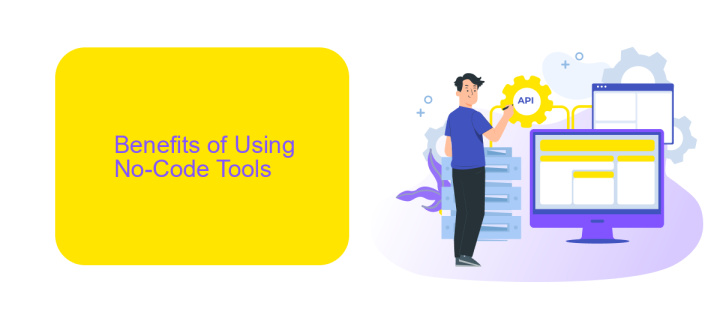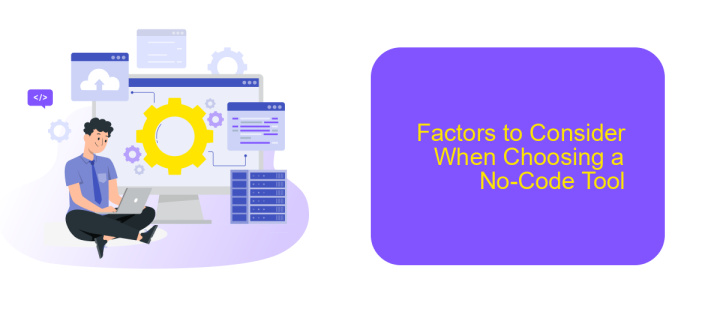Top No-Code Tools
In today's fast-paced digital landscape, the demand for quick and efficient solutions is higher than ever. No-code tools have emerged as a game-changer, empowering individuals and businesses to build applications, automate workflows, and create websites without the need for traditional coding skills. This article explores the top no-code tools that are revolutionizing the way we develop and innovate.
Introduction
No-code tools have revolutionized the way businesses and individuals approach software development and automation. These platforms enable users to create applications, websites, and workflows without writing a single line of code. This democratization of technology has opened up opportunities for non-developers to bring their ideas to life, streamline processes, and enhance productivity.
- Ease of use: Intuitive interfaces that require no coding skills.
- Cost-effective: Reduces the need for expensive development teams.
- Speed: Accelerates project timelines with rapid prototyping.
- Flexibility: Allows for easy adjustments and iterations.
One of the standout features of many no-code tools is their ability to integrate with other services effortlessly. For instance, ApiX-Drive allows users to connect various applications and automate workflows, enhancing the functionality of no-code platforms. Whether you're looking to sync data between apps or automate repetitive tasks, no-code tools combined with integration services like ApiX-Drive can significantly boost efficiency and innovation.
Benefits of Using No-Code Tools

No-code tools offer a range of benefits that make them highly appealing for businesses and individuals alike. First and foremost, they significantly reduce the time and cost associated with software development. By eliminating the need for extensive coding knowledge, these tools empower non-technical users to create and deploy applications quickly. This democratizes the development process, allowing teams to focus on innovation and problem-solving rather than getting bogged down by technical complexities.
Another major advantage is the ease of integration with other services and platforms. Tools like ApiX-Drive facilitate seamless connections between various applications, enabling automated workflows and data synchronization without the need for custom coding. This enhances operational efficiency and ensures that different systems can communicate effectively. Overall, no-code tools provide a flexible and scalable solution for modern business needs, making it easier to adapt and grow in a rapidly changing technological landscape.
Top No-Code Tools for Different Use Cases

No-code tools have revolutionized the way businesses operate, making it easier for non-developers to create applications, automate workflows, and manage data. These tools cater to various use cases, from website building to automating complex business processes.
- Website Building: Tools like Wix and Webflow allow users to design and launch professional websites without writing a single line of code.
- App Development: Platforms such as Bubble and Adalo enable users to build fully functional web and mobile applications with drag-and-drop interfaces.
- Workflow Automation: Zapier and ApiX-Drive help automate repetitive tasks by integrating different applications, saving time and reducing human error.
- Data Management: Airtable and Notion provide robust solutions for organizing and managing data, making it accessible and actionable for teams.
- eCommerce: Shopify and BigCommerce offer comprehensive tools for setting up and managing online stores, including inventory management and payment processing.
These no-code tools empower individuals and businesses to innovate and streamline operations without needing extensive technical expertise. By leveraging these platforms, users can focus on creativity and strategic growth rather than being bogged down by complex coding tasks.
Factors to Consider When Choosing a No-Code Tool

When selecting a no-code tool, it's crucial to evaluate several factors to ensure it meets your needs. The right tool can significantly streamline your workflow and enhance productivity, so making an informed decision is key.
First, consider the ease of use. A user-friendly interface is essential, especially if you're not a developer. Look for tools that offer intuitive drag-and-drop features and comprehensive tutorials. Secondly, assess the tool's scalability. Will it grow with your business? Ensure it can handle increasing data and user demands.
- Integration capabilities: Check if the tool can seamlessly integrate with other software you use, such as ApiX-Drive for automating workflows.
- Customization options: The ability to tailor the tool to your specific needs is vital.
- Support and community: Reliable customer support and an active user community can be invaluable resources.
- Cost: Ensure the tool fits within your budget while still providing the features you need.
Lastly, consider the security features. Protecting your data should be a top priority, so choose a tool with robust security measures. By carefully evaluating these factors, you can select a no-code tool that best aligns with your objectives and requirements.
- Automate the work of an online store or landing
- Empower through integration
- Don't spend money on programmers and integrators
- Save time by automating routine tasks
Conclusion
No-code tools have revolutionized how businesses and individuals approach software development and automation. These platforms empower users without technical backgrounds to create, customize, and deploy applications, significantly reducing time and costs associated with traditional development methods. Whether you're looking to build a website, automate workflows, or develop mobile applications, there's a no-code tool out there to meet your needs.
One notable tool in the integration space is ApiX-Drive, which simplifies the process of connecting various applications and services. By providing a user-friendly interface and robust functionality, ApiX-Drive enables seamless data transfer and synchronization between platforms. This not only enhances productivity but also ensures that your systems work harmoniously together. As the landscape of no-code solutions continues to evolve, embracing these tools can provide a competitive edge, streamline operations, and foster innovation across diverse sectors.
FAQ
What are No-Code tools?
How can No-Code tools benefit my business?
Can I integrate No-Code tools with my existing systems?
Are No-Code tools secure?
What are some common use cases for No-Code tools?
Time is the most valuable resource for business today. Almost half of it is wasted on routine tasks. Your employees are constantly forced to perform monotonous tasks that are difficult to classify as important and specialized. You can leave everything as it is by hiring additional employees, or you can automate most of the business processes using the ApiX-Drive online connector to get rid of unnecessary time and money expenses once and for all. The choice is yours!


